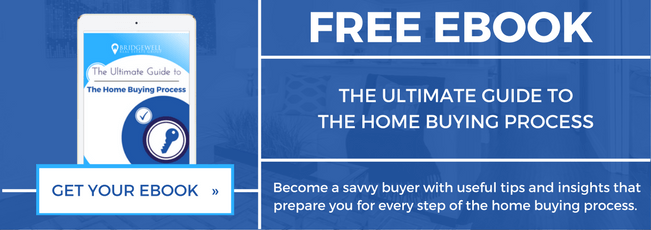Fixed Rate vs Variable Rate
Should you choose a fixed or variable interest rate
Over the past 12 months we have been in a rising interest rate environment and more than ever, we are asked the burning question… Should we stay with our variable rate or lock into a fixed rate?
This blog goes in to detail about the pros and cons of the fixed rate vs variable rate.
We also go through the basic definitions of each type of interest rate, and our “winner” of what we recommend you go with in 2019.
Fixed Rate vs Variable Rate Definitions
Before we dive in to the details of the fixed rate vs variable rate argument, let’s first start with the definition of the fixed and variable rates.
Fixed Rate Definition
- A fixed interest rate is a set rate and payment for the duration of your mortgage term
- Your interest rate is the same for your term (i.e. 5 year term) and will not change regardless of whether the market rate goes up or down.
Variable Rate Definition
- A variable interest rate is an interest rate on a loan or security that fluctuates over time, because it is based on an underlying benchmark interest rate or index that changes periodically.
Fixed Rate vs Variable Rate Pros & Cons
No one, particularly the banks, expect you to know or understand many of the factors that come with selecting a mortgage rate product and with all things being equal and static, you would likely gravitate to the variable, especially today given the discount off of the Prime rate which is sitting pretty close to most lenders fixed rates.
As we have seen over the years, there is not much stability in the interest rate arena, so knowing what comes with a fixed rate or a variable rate is the first step in making a confident decision. Let’s take a look at how these rates differ and the pros and cons of each:
Fixed interest rate
- The 5-year term is usually the term you hear quoted by the media which is likely led by the banks as that is their preferred “sweet spot”
- Pre-payment penalties that you may or may not have been told about by a bank representative can be as high as 4.5% of the balance ($18,000 on a $400,000 Mortgage) or as low as 3 months interest ($3,500 on a $400,000 mortgage and a 3.5% fixed rate)
- This penalty is calculated on the highest penalty of 2 scenarios (3 months interest or an interest rate differential) and the formula that the banks will use for the interest rate differential is based off their “posted rate” which in the case of a Chartered retail bank, is like a “rack” rate in a hotel (eg: current 5-year fixed rate of 3.79% – Posted rate of 5.44%). I have yet to see this penalty formula be less than the 3-month interest penalty and suffice to say, spelling it out in this post would be a little confusing.
Variable interest rate
- Generally, a discount off the Prime rate. The discount is essentially your rate, not the current net result. Eg: a Prime minus 1.00% is equivalent to 2.95% as the Prime rate is currently 3.95%. Should the Prime rate go to 4.2%, your new rate would be 3.2% – I would call this rate a Prime minus 1%
- Pre-payment is always 3 months interest.
- Locking into a fixed (if you get too nervous) can be done as long as the new fixed term is equal or greater than your remaining variable term
- Some lenders will allow your payment to remain static over the course of the term even if there are increases (to a certain point) but a smaller portion of your payment will be put towards the principle.
The key point in these 2 short overviews is the Pre-payment penalty. Statistics state that 6 out of 10 (60%) of 5-year term mortgage holders will break their mortgage at the 34-38 month mark. Reasons for breaking a mortgage early could be a result of a number of things particularly marriage break downs (also 60%), job transfer, career change, job loss, illness or inheritance (time to upgrade).
Is variable or a fixed rate better right now?
With the current gap between the net variable rate and say the 5-year fixed being almost 1.2% (with some lenders), it is hard not to justify that the variable is best, if you want to save money on interest, especially if you make payments equivalent to what they would be at the fixed rate calculation.
Ultimately a gamble on what will win out at the end of any desired term, the flexibility and discount of the variable rate along with a payment equal to what you are prepared to pay with the fixed rate, will show great savings, even if the Prime rate increases.
As an example, if the prime rate were to go up 5 times over the next 2 years, you would still be ahead (assuming the increases are .25% and you are making payments equivalent to the higher rate)
Even if rates continue to climb after 2 years, you still have all the money that was saved up until that point because the additional money you paid using the higher payment would have reduced your principal significantly.
In terms of the “threat” of a prolonged continual increase, the general consensus amongst economists and analysts is it will not happen and as of the last 2 weeks, the forecast is we may be in a lull with any Prime rate increases given the state of world economics as well as the price of oil….A big driver of our economy.
For those that are fearful of the increase, keep in mind that for every .25% increase in rate, you will pay an additional $14 for every $100k of mortgage debt per month. Eg: $56 a month on a $400k mortgage. Not too devastating.
So, unless you need to have the security of payments and have considered the potential pitfalls of an early payout penalty, with what is available in terms of discounts off of Prime rate, We feel the variable wins out!




